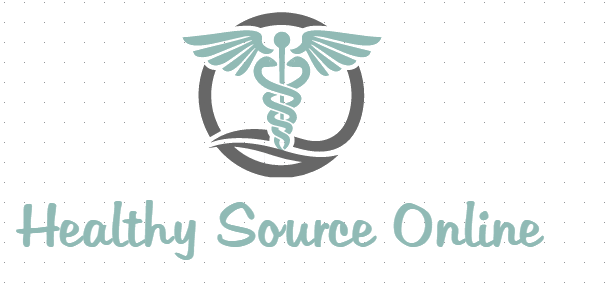[ad_1]
Contributed by: Rachana Arya
Introduction
Hypotension, or low blood pressure, is the opposite of hypertension. Low blood pressure is a problem, just like high blood pressure. Within certain limits, a low blood pressure reading is desirable. However, when a person’s blood pressure reaches a very low level, it leads to inadequate blood flow to the organs.
Let’s find out more about low blood pressure and its impact on your health. You can also follow our coverage of hypertension high blood pressure FAQs here.
FAQ #1: What is dangerously low blood pressure?
Normal blood pressure is a vital body function that everyone needs for blood to reach all of the body’s organs. The average measurement of 120 over 80 is used as a benchmark for evaluating normal blood pressure. But when the blood pressure reading goes down to 90 mm of mercury (mm Hg) for the top number (systolic) or 60 mm Hg for the bottom number (diastolic), it is considered as low blood pressure. Low blood pressure is also referred to as hypotension (hypo=low, tension=pressure).
FAQ #2: Is low blood pressure dangerous?
Low blood pressure usually doesn’t cause symptoms and can generally go unnoticed. However, a sudden decline in blood pressure can be dangerous and can have a damaging impact on the body. During low blood pressures, the body may be deprived of enough oxygen to carry out its functions, leading to damage to your heart and brain. Additionally, sudden severe drops in levels of blood pressure can also be life-threatening.
FAQ #3: What does low blood pressure feel like?
Low blood pressure does not have many visible symptoms the way high blood pressure does. Hypotension usually manifests itself first in the brain. Aside from dizziness and nausea, you may lack energy, and you may find it difficult to think clearly. Some people experience light-headedness to the point of passing out, while others experience cold and clammy skin, faster breathing, blurred vision, and/or chest pain.
FAQ #4: What symptoms do you feel when your blood pressure is too low?
If your blood pressure dips substantially, there may be certain obvious symptoms like:
-
- Dizziness
- Fainting
- Blurred vision
- Nausea
- Fatigue
- Lack of concentration
FAQ #5: What are the symptoms of extreme hypotension (low blood pressure)?
Extreme hypotension can turn into a life-threatening condition. Signs and symptoms include:
-
- Confusion
- Fainting
- Cold, clammy, pale skin
- Rapid, shallow breathing
- Weak and rapid pulse
- Dehydration
- Extreme tiredness
FAQ #6: What are the factors that trigger low blood pressure?
While the cause of low blood pressure in most people remains unclear, yet some common factors that can contribute to the development of hypotension can range from dehydration to medical conditions, such as:
-
- Pregnancy
- Prolonged bed rest
- Heart problems
- Endocrine problems
- Dehydration
- Blood loss
- Severe infection (septicemia)
- Severe allergic reaction (anaphylaxis)
- Nutritional deficiencies
- Certain medications
- Emotional stress
FAQ #7: Is hypotension a serious medical condition?
Hypotension is not usually a significant medical condition. However, if there are any concerning symptoms — like a loss of consciousness, mental confusion, and a weak, rapid pulse — it is important you should seek immediate medical attention. Moreover, especially for people who are older, it can potentially result in accidents from fainting and falling.
This is not good news for the elderly, who potentially have brittle bones and other issues. If hypotension is not addressed, the brain, heart, and other organs will be deprived of blood and will be unable to function correctly. Shock, which can be lethal, can result from severe hypotension.
FAQ #8: What should I do if I notice a sudden decline in blood pressure?
If you don’t have any other symptoms or issues, a single lower-than-normal reading isn’t a cause for concern. It could be a relatively minor problem like mild dehydration. However, chronically low blood pressure can signal an underlying health condition and it is recommended that you speak with your healthcare professional.
FAQ #9: What should I do if I suffer from hypotension?
Here’s what you can do:
FAQ #10: Can low blood pressure be treated?
By incorporating lifestyle and dietary changes, you can protect your brain as well as your heart health. Some of the steps you can take to avoid an episode of low blood pressure include:
-
- Follow a regular exercise regimen
- Avoid lifting heavy objects
- Avoid prolonged exposure to hot water (shower, pools, and spas)
- Increase non-alcoholic fluids intake
- Ask your doctor review your prescriptions to find out if any medication is causing the low blood pressure
FAQ #11: Should I worry if hypotension runs in my family?
Hypotension does have a significant genetic component, and your risk for low blood pressure can increase based on your age along with certain temporary factors, such as pregnancy or dehydration.
FAQ #12: Can psychological issues cause hypotension?
It’s better to think of hypotension as a physiological condition rather than an illness. Several studies have demonstrated that low blood pressure is linked to nonspecific symptoms including fatigue and dizziness. Some experts believe that psychological dysfunctions may be linked to hypotension because these symptoms are frequently attributed to psychological issues.
FAQ #13: Can lack of sleep cause low blood pressure?
No. Sleep deprivation is not associated with dipping in blood pressure. On the contrary, lack of sleep is more likely to cause high blood pressure after chronic poor sleep.
FAQ #14: Is it OK to walk or exercise with low blood pressure?
Even if you have low blood pressure, it is usually safe to exercise. In fact, exercise can help you maintain a healthy blood pressure level.
FAQ #15: Can Ayurvedic herbs treat low blood pressure?
Here are some Ayurvedic herbal therapies that can be used to treat hypotension naturally:
-
- Garlic
- Celery seeds
- Raisins
- Flax seeds
- Basil
- Cardamon
- Cinnamon
Final thoughts
Although low blood pressure is relatively low risk when compared to high blood pressure, nevertheless it can also be dangerous. Thus, if you have low blood pressure, it is critical that you understand how to raise blood pressure and take action to get your BP levels back to normal.
If you’re not on any blood pressure medication but still get dizzy or fainting spells, there could be other underlying medical conditions for which regular health screenings and medical intervention is the best route to take.
Book The Full Body Health Checkup Today!
This post has already been read 2 times!
[ad_2]
Source link




